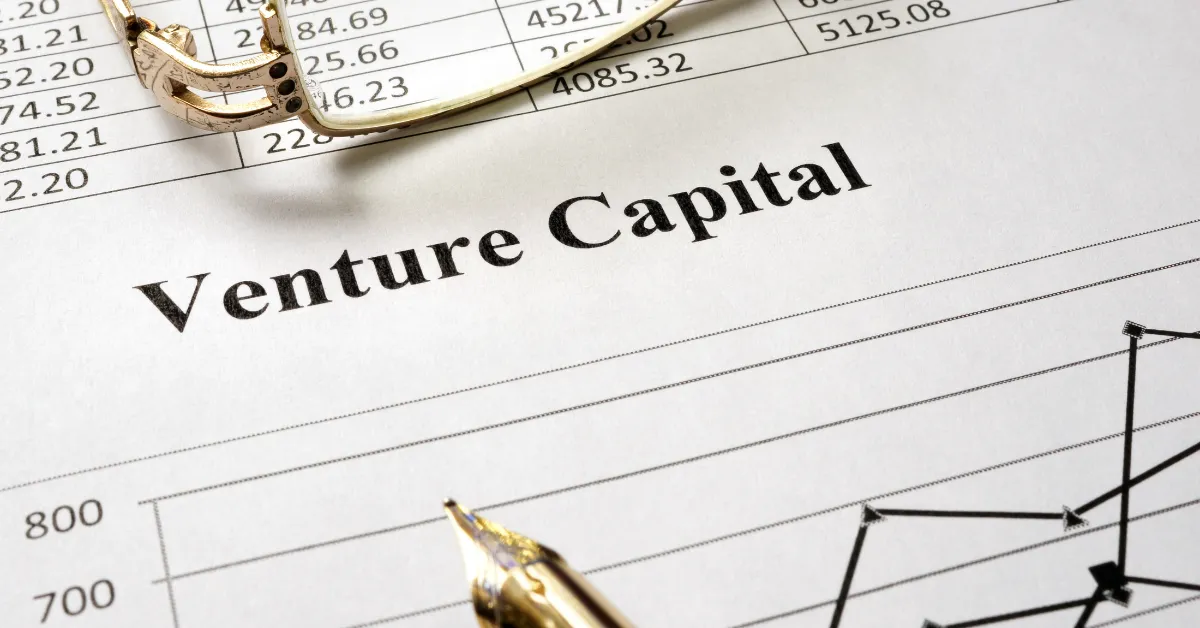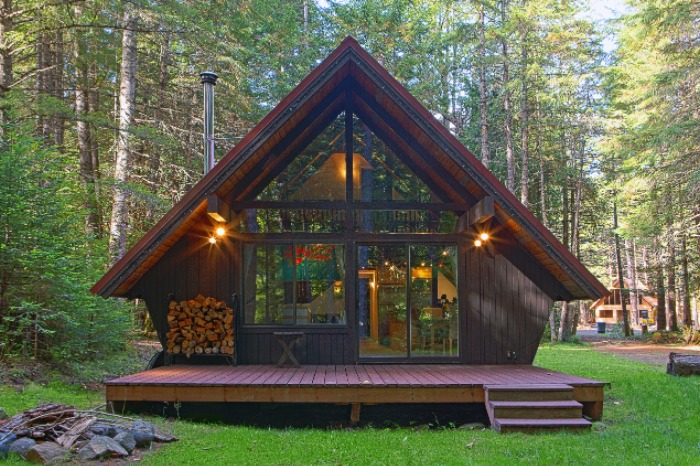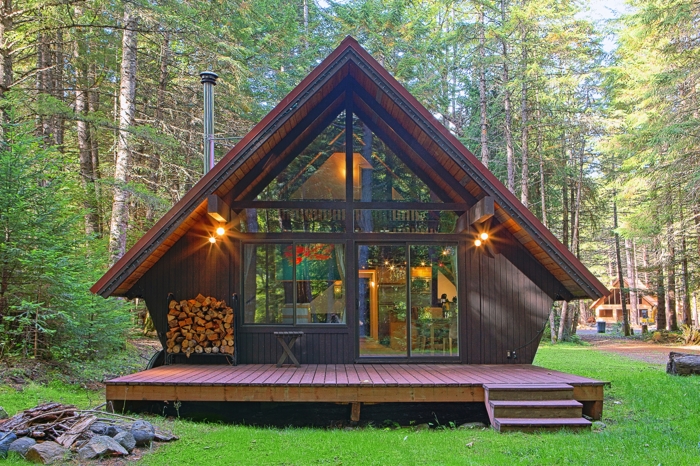The short-term rental game is a battlefield, and hosts who dominate wield the sharpest tools. Airbnb tools for hosts are the arsenal you need to manage listings, crush pricing, and deliver five-star guest experiences that keep bookings flowing. These affordable solutions ensure you can efficiently manage your rentals without breaking the bank. Whether you’re a new host dipping your toes or a professional Airbnb host juggling multiple listings, the right host tools can 10X your revenue and efficiency. Enter 10XBNB, the elite program that arms hosts with cutting-edge strategies and integrations to conquer the market. This Airbnb Tips post unlocks the best Airbnb tools, answers critical hosting questions, and shows how 10XBNB’s insider tactics can transform your property into a cash-flowing machine.
Introduction to Hosting

Hosting on Airbnb can be a lucrative business venture, but it requires careful planning and management. To succeed as an Airbnb host, it’s essential to have a solid understanding of the platform, its features, and the tools available to manage listings and interact with guests. Effective hosting involves creating a welcoming and comfortable space for guests, responding promptly to inquiries and messages, and maintaining a high level of cleanliness and organization.
Utilizing the best Airbnb tools, such as dynamic pricing tools and automated messaging software, can help hosts streamline their workflow, increase efficiency, and maximize revenue. Dynamic pricing tools adjust your rates based on market demand, ensuring you’re always competitively priced. Automated messaging software handles guest communication, sending timely responses and updates without manual effort.
By leveraging these tools and strategies, hosts can provide an exceptional guest experience, earn better reviews, and increase their chances of becoming an Airbnb Superhost. The right tools not only save time but also enhance the overall guest experience, leading to higher satisfaction and repeat bookings. Whether you’re a new host or looking to scale your business, mastering these tools is key to your success.
What Are Airbnb Professional Tools?
Airbnb’s professional tools, including various Airbnb software options, are a suite of advanced features designed for hosts managing multiple listings or aiming to scale their business. These host tools include multi-calendar syncing, rule-sets for pricing and availability, automated messaging, and task management. They’re built to streamline operations, letting you manage bookings, guest communication, and property performance from a single dashboard. Unlike basic Airbnb app features, professional tools cater to property managers and serious hosts who treat their Airbnb property as a business, not a side hustle.
Why Airbnb Tools Matter for Hosts
The best Airbnb tools save time, boost bookings, and maximize revenue. Unlike many other tools in the market, these solutions provide options specifically tailored for small scale hosts. Without them, you’re stuck manually updating calendars, crafting messages, or guessing at pricing—wasting hours that could be spent growing your empire. Tools like dynamic pricing software, channel managers, and smart locks automate repetitive tasks, prevent double bookings, and optimize your Airbnb listing for profit. 10XBNB takes it further, teaching hosts to leverage these tools with proprietary strategies that outpace competitors.
How 10XBNB Elevates Your Hosting Game
10XBNB isn’t just another program—it’s a rocket ship for hosts ready to dominate. By integrating the best Airbnb tools with exclusive tactics like predictive analytics and host analytics, 10XBNB empowers you to forecast market trends, fine-tune pricing, and scale your portfolio. Their training shows you how to wield host tools like a pro, turning your Airbnb property into a revenue-generating powerhouse.
Must-Have Airbnb Tools for Hosts
The right tools are non-negotiable for hosts who want to win. Key features of must-have Airbnb tools include automated messaging, dynamic pricing, and seamless calendar synchronization. Here’s a breakdown of the key categories and how they supercharge your business.
Dynamic Pricing Tools: Price Labs and Beyond
Pricing is the heartbeat of your Airbnb business. Dynamic pricing tools like Price Labs analyze market data, competitor rates, and demand trends to set optimal nightly rates. For property managers with numerous listings on their books, these tools are essential for effective management of reservations. These pricing tools adjust in real-time, ensuring you’re never underpriced during peak seasons or overpriced in slow periods. 10XBNB’s Airbnb data strategies amplify these tools, teaching you to stack pricing rules for maximum profit.
Pro Tip: Use Price Labs’ custom pricing options to set minimum stays during holidays, boosting revenue without extra effort.
Channel Managers: Syncing Multiple Platforms
Managing listings across Airbnb, Vrbo, and Booking.com without a channel manager is a recipe for double bookings. Tools like Hostaway and Guesty sync calendars, update availability, and streamline bookings across platforms. This automation tool ensures your Airbnb listing stays active and accurate, no matter how many platforms you’re on.
Automated Messaging: Guest Communication on Autopilot
Guest communication is time-intensive, but automated messaging tools like Host Tools and Smartbnb make it effortless. Set up automatic messages for check-in instructions, house rules, and post-stay reviews to save hours while maintaining a personal touch. 10XBNB’s ChatGPT for Airbnb training shows how to craft AI-powered messages that feel human, driving better reviews and repeat guests.
Smart Locks: Seamless Check-In and Security
Smart locks like August or Schlage encode are game-changers for guest check-in. They allow remote access, generate unique codes for each guest, and integrate with property management software. No more key handoffs or late-night meetups. 10XBNB emphasizes smart locks as a cornerstone of automation, freeing you to focus on scaling.
Digital Guidebooks: Elevating Guest Experience
A digital guidebook is a great tool for enhancing guest experience. Providing a complete listing for Airbnb hosts to attract guests effectively is crucial. Tools like Touch Stay let you create customized guides with local recommendations, house rules, and check-out instructions. This reduces guest inquiries and boosts satisfaction, leading to five-star reviews. 10XBNB’s upsell strategies show how to weave upsells into guidebooks, adding revenue streams effortlessly.
Task Management: Streamlining Operations
For hosts with multiple listings, task management tools like Trello or TurnoverBnB keep cleaning, maintenance, and guest prep on track. Assign tasks to teams, track progress, and ensure your property is guest-ready. 10XBNB’s systems optimize these workflows, making property management a breeze.
Market Research and Analysis for Airbnb
Conducting thorough market research and analysis is crucial for Airbnb hosts to understand their target audience, optimize their pricing strategy, and stay competitive. Tools like AirDNA and other market analytics platforms provide valuable insights into market trends, occupancy rates, and revenue potential, helping hosts make informed decisions about their listings.
By analyzing market data, hosts can identify opportunities to increase their revenue, adjust their pricing accordingly, and create a unique selling proposition to attract more guests. This data-driven approach allows hosts to fine-tune their pricing strategy, ensuring they are neither underpricing nor overpricing their properties.
Additionally, hosts can use this data to refine their listing description, highlight their property’s best features, and create a compelling guest experience that sets them apart from other hosts. A well-crafted listing that resonates with potential guests can significantly boost bookings and revenue.
By staying up-to-date with the latest market trends and using data-driven insights to inform their hosting strategy, hosts can maximize their earnings, minimize vacancies, and build a successful Airbnb business. Market research is not just about understanding the competition; it’s about leveraging data to create a superior guest experience and a profitable hosting venture.
How to Access Airbnb Professional Tools
Wondering how to get Pro Tools on Airbnb? It’s simple. All hosts can opt-in via account settings, regardless of listing count. Navigate to your Airbnb app, go to “Account,” and toggle “Use Professional Tools.” For hosts with six or more listings, these tools activate automatically. Pro Tools include advanced features like rule-sets, multi-calendar, and performance analytics—perfect for professional Airbnb hosts scaling fast.
Pro Tip: After enabling Pro Tools, set up rule-sets to automate pricing adjustments for high-demand weekends, saving time and boosting revenue.
The 90-Day Rule for Airbnb: What Hosts Need to Know
In Greater London, the 90-day rule limits entire-home Airbnb listings to 90 nights per calendar year without special council permission. This regulation, unique to London, doesn’t apply to room rentals or properties outside the area. To comply, use Airbnb’s calendar to track booked nights and set alerts as you near the limit. 10XBNB’s training helps hosts navigate regulations like this, using predictive analytics to optimize bookings within legal constraints.
What You Need to Host on Airbnb
To become an Airbnb host, you need a property (owned or leased with permission), a compelling listing description, high-quality photos, and a commitment to guest experience. Basic requirements include:
- A Suitable Space: Entire homes, private rooms, or unique stays like treehouses.
- Compliance: Local permits, tax registration, and adherence to regulations like the 90-day rule.
- Tools: Airbnb app for managing bookings, plus optional host tools for automation.
- Time or Systems: Either manage tasks manually or use property management software to scale.
10XBNB’s program fast-tracks this setup, guiding new hosts to launch profitably with minimal headaches.
Why Dynamic Pricing Is Non-Negotiable

Optimizing prices is the secret weapon of top-earning hosts. Pricing algorithms analyze local events, competitor rates, and booking trends to adjust your rates daily. Tools like Wheelhouse or Beyond Pricing ensure your Airbnb property stays competitive, maximizing occupancy and revenue. Learn how to use Smart Pricing on VRBO to enhance occupancy rates and revenue further. 10XBNB’s host analytics training teaches you to layer dynamic pricing with custom rules, outsmarting the market.
The Power of Calendar Syncing
Calendar syncing prevents the nightmare of double bookings. A channel manager syncs your Airbnb calendar with Vrbo, Booking.com, and other platforms, ensuring availability is always accurate. This is critical for hosts managing multiple listings across multiple platforms. 10XBNB’s systems integrate calendar syncing into a broader strategy, keeping your bookings seamless as you scale.
Guest Communication: The Key to Five-Star Reviews
Great guest communication drives better reviews and repeat bookings. Automated messaging tools let you send timely messages for check-in, check-out, and post-stay feedback. Pair this with a digital guidebook to answer common questions, reducing back-and-forth. 10XBNB’s ChatGPT for Airbnb tactics craft messages that feel personal, boosting guest satisfaction.
Smart Locks: Security Meets Convenience
Smart locks aren’t just convenient—they’re a security must. They allow keyless entry, remote access, and unique codes for each guest, reducing risk and hassle. Tools like Igloohome integrate with Airbnb’s app, automating code generation. 10XBNB emphasizes smart locks as a foundation for scaling, letting you manage multiple listings without physical key exchanges.
Digital Guidebooks: Your Guest Experience Edge
A digital guidebook is more than a nice-to-have—it’s a revenue driver. By providing local tips, house rules, and check-out instructions, you reduce guest inquiries and enhance their stay. Tools like Hostfully let you create sleek guidebooks that impress. 10XBNB’s upsell strategies show how to embed upsells like early check-in fees, adding thousands to your bottom line.
Task Management for Multiple Listings
For property managers, task management tools are a lifeline. Platforms like TurnoverBnB automate cleaning schedules, while Trello organizes maintenance and guest prep. These tools ensure your properties are always guest-ready. 10XBNB’s systems streamline these processes, letting you manage dozens of listings like a pro.
Channel Managers: Expanding Your Reach
A channel manager like Hostaway or Lodgify syncs your Airbnb listing with other platforms, boosting exposure and bookings. This automation tool prevents overbookings and simplifies pricing updates across sites. 10XBNB’s X ads for Airbnb training shows how to market these listings, driving traffic from untapped channels.
Automated Reviews: Boosting Your Airbnb Superhost Status
Automated reviews encourage guests to leave feedback, helping you maintain Airbnb Superhost status. Tools like Host Tools send post-stay messages prompting reviews, increasing your rating visibility. 10XBNB’s strategies ensure these messages are timed and worded for maximum impact, securing better reviews.
Pricing Strategy: The 10XBNB Difference
A killer pricing strategy separates average hosts from million-dollar empires. Dynamic pricing tools are step one, but 10XBNB’s Airbnb data training takes it further. Learn to analyze market data, stack pricing rules, and use predictive analytics to stay ahead of demand curves. This isn’t just pricing—it’s domination.
Property Management Software: Scaling Made Simple
Property management software like Guesty or Hostfully ties everything together—bookings, messaging, pricing, and tasks by integrating with property management systems. These platforms are built for professional Airbnb hosts managing multiple listings. 10XBNB integrates these tools into a cohesive system, teaching you to run your business like a Fortune 500 company.
The Role of Market Data in Hosting Success
Market data drives smart decisions. The process of using market data to optimize listings and pricing strategies involves analyzing local demand, competitor pricing, and occupancy trends. Tools like AirDNA provide insights into local demand, competitor pricing, and occupancy trends. By leveraging this data, you can optimize your pricing and availability. 10XBNB’s predictive analytics training shows how to turn raw data into a crystal ball for your business.
Guest Interactions: Building Loyalty
Positive guest interactions turn one-time stays into repeat bookings. Tools like Smartbnb handle initial inquiries, while digital guidebooks provide a polished experience. 10XBNB’s ChatGPT for Airbnb tactics craft messages that build rapport, ensuring guests feel valued and return.
Avoiding Double Bookings
Double bookings kill your reputation. A channel manager syncs your calendar across platforms, while Airbnb’s multi-calendar feature tracks availability for multiple listings. 10XBNB’s systems prioritize calendar syncing, ensuring your bookings are airtight as you scale.
House Rules: Setting Expectations
Clear house rules prevent misunderstandings. Include them in your listing description, digital guidebook, and automated messages. Tools like Host Tools let you automate rule delivery, ensuring guests know what’s expected. 10XBNB’s training ensures your rules are firm yet guest-friendly, minimizing issues.
The Airbnb App: Your Command Center
The Airbnb app is your hub for managing bookings, messages, and performance. Its built-in tools, like Smart Pricing and Instant Book, are great for new hosts, but pros need more. 10XBNB shows how to pair the app with advanced host tools, creating a seamless command center for your empire.
Marketing Your Airbnb Listing
A standout Airbnb listing requires more than a great property. Use high-quality photos, a compelling listing description, and Google Ads for Airbnb to drive traffic. 10XBNB’s marketing strategies, including TikTok ads for Airbnb, ensure your listing dominates search results and social feeds.
The Pros and Cons of Airbnb Tools
Pros:
- Time Savings: Automation tools like automated messaging and channel managers free up hours.
- Revenue Boost: Dynamic pricing and upsells increase earnings.
- Scalability: Property management software supports multiple listings effortlessly.
- Guest Satisfaction: Digital guidebooks and smart locks enhance guest experience.
Cons:
- Learning Curve: Some tools require setup time and training.
- Costs: Pricing tools and channel managers often have monthly fees.
- Over-Reliance: Automation can feel impersonal if not balanced with human touch.
10XBNB’s training mitigates these cons, teaching you to master tools quickly and personalize automation for maximum impact.
Why Many Hosts Fail (And How You Won’t)

Many hosts fail because they rely on outdated methods or skip automation. They underprice their property, miss bookings, or burn out managing tasks manually. 10XBNB’s program ensures you avoid these pitfalls, arming you with the best Airbnb tools and strategies to dominate your market.
The Future of Airbnb Hosting
The future of Airbnb hosting is automation, data, and scale. Tools like Price Labs, Hostaway, and smart locks are just the start. 10XBNB’s predictive analytics and host analytics keep you ahead of the curve, turning your Airbnb property into a legacy business.
How to Choose the Best Airbnb Tools
Selecting the best Airbnb tools depends on your goals. New hosts should start with free Airbnb app features and add tools like Host Tools for messaging. Property managers need channel managers and property management software. 10XBNB’s training helps you pick tools that align with your vision, ensuring every dollar spent delivers 10X returns.
The 10XBNB Advantage: Why You Need It
10XBNB isn’t just a program—it’s your unfair advantage. By combining the best Airbnb tools with exclusive strategies like Facebook Ads for Airbnb and Bing Ads for Airbnb, 10XBNB transforms hosts into market leaders. Their training shows you how to stack tools, optimize pricing, and scale without limits.
Common Mistakes Hosts Make with Tools
Hosts often misuse tools by:
- Ignoring dynamic pricing, leaving money on the table.
- Over-automating messages, losing the personal touch.
- Skipping channel managers, risking double bookings.
10XBNB’s training prevents these errors, teaching you to balance automation with guest experience for maximum profit.
Scaling Your Airbnb Business
Scaling requires systems. Property management software, channel managers, and task management tools let you manage multiple listings without chaos. 10XBNB’s LinkedIn Ads for Airbnb strategies attract high-value guests, while their systems ensure your operations run like clockwork.
The Role of Airbnb Experts
Airbnb experts like those at 10XBNB provide insider knowledge that tools alone can’t. Their training covers everything from pricing to marketing, ensuring you maximize every tool in your arsenal. With 10XBNB, you’re not just a host—you’re a market dominator.
Final Thoughts: Dominate with 10XBNB
The best Airbnb tools for hosts are your ticket to freedom, profit, and scale. From dynamic pricing to smart locks, these tools automate tasks, boost bookings, and elevate guest experience. But tools alone aren’t enough. 10XBNB’s elite training and proprietary strategies—like predictive analytics and upsells—give you the edge to crush competitors and build a rental empire. Don’t just host—dominate. Join












